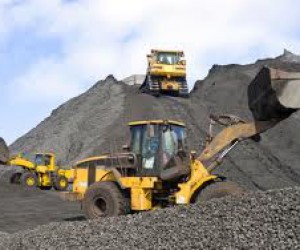All three major players in the mining sector have lost contact with the mining coalface, say speakers at the Joburg Indaba conference: Investing in Mining and Resources in Africa.
Michael Spicer, vice president at Business Leadership SA, government, business and labour have all lost contact with mining workers. Government doesn’t speak to the needs of the people. Union officials represent their own interests and business management have lost control by outsourcing critical management to unions or HR departments.”
He says, “Management have abrogated their responsibilities by not maintaining clear communications with labour and educating them on the realities of the business. They also don’t explain the business and link wages to productivity. Management is complicit in acceding to raises that have no relation to productivity, fuelling unrealistic expectations.”
Spicer says communication is all one sided, from the unions point of view and speaks often about rights and equality but never about economic realities, productivity and SA’s need to compete with the rest of the world. One of the main issues being addressed at the upcoming 2013 Joburg Indaba on “Investing in Resources and Mining in Africa” taking place in October.
He says that attention also needs to be paid to executive remuneration as well and it needs to be linked to the health and success of the business. Remuneration across mining should always be linked to productivity. “Management needs to get back to the coalface and communicate the realities of the business. Participants cannot just conjure up an abstract wage increase number. It needs to be inextricably linked to the productivity and competitiveness of the mining business as a whole.”
Spicer acknowledges some of the moves government is making to address labour unrest but believes this is not the best time with national elections around the corner and strike season coming into full swing. “Short-term political goals will be pursued rather than long-term solutions to the labour crisis. Politicians after all want to get re-elected.”
He says part of the problem as well is that mining companies do not act collaboratively and constantly compete with each other instead of discussing possible solutions. “Mining companies, as is not uncommon in other sectors and countries, do not naturally co-operate.”
“In our local and very expensive business operating environment it is not sustainable for wages to keep rising across the board. We need to revolutionise and innovate labour processes in the mining sector or we will end up killing the goose that lays the golden eggs. We need to impart greater skills to a smaller workforce with better wages and an improved working environment like in the US and Australia.”
Spicer says we need labour that is productive and economic and fewer, better-trained and better-paid workers will do the same amount of work as a large, lower skilled work force. A multi skilled workforce, incentivised through bonuses to be very productive, should be the future of mining in SA and would re-instate this country as a global mining leader. “The old fashioned union doctrine that no-one must get laid off and all should receive the same increases does not approximate with economic reality”, he says.
According to another speaker at the Joburg Indaba, Mike Teke, VP of the SA Chamber of Mines, all participants in the mining sector, namely government ,business and labour, need to work together to realise the extraordinary potential of our local mining sector.
He says “We need to be realistic; we cannot have conflict all the time as stakeholders in the industry. We need to start being realistic as business and unions. Creating an atmosphere of high wage demands, with wage percentages ranging from 100% and beyond creates difficulties and raises expectations. We also need to stop the violence and ensure the rule of law always applies throughout collective bargaining processes”.
Teke says economic growth is key for the prosperity of our mining sector but foreign investors require mining and labour policy certainty and stability in order to invest in SA. In addition, mining labour needs to be reskilled and educated and knowledge needs to generate economic value. Collective bargaining needs to be reworked to discourage grandstanding and open up better communications.
He stresses that mining participants “Need to deal with the elephants in the room like skills and commercial development, wage increases and wage gaps, transformation, productivity and work ethic in order to realise our true economic potential”.






